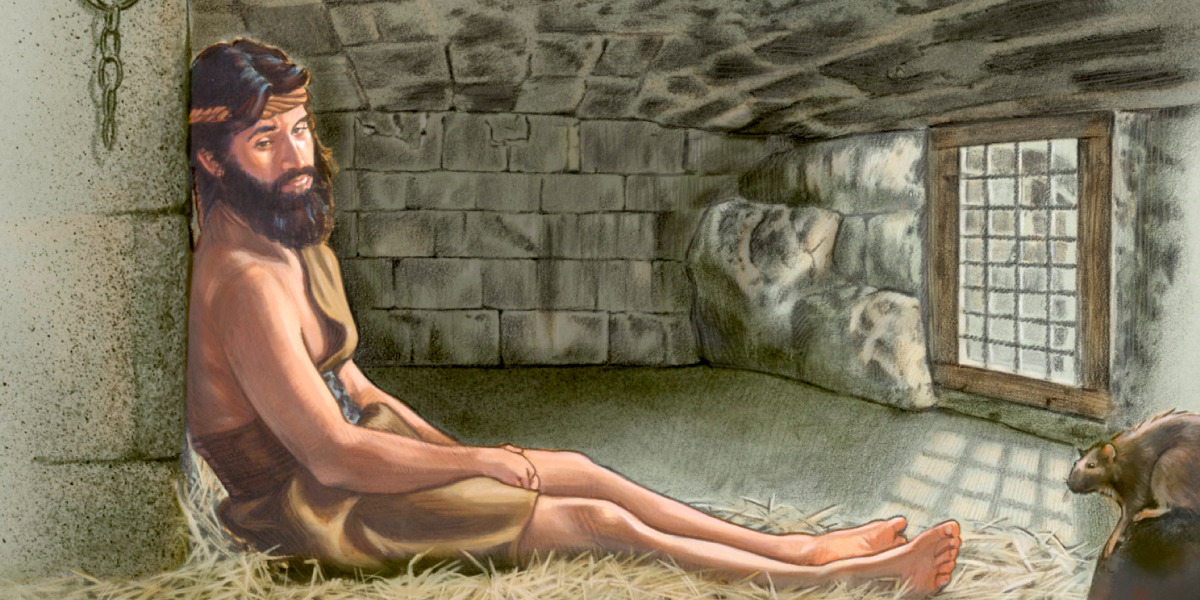The Goodness and the Severity of God
Intro
This post relates to CLP's Sunday School lesson for March 11, 2018.
John Ruth, in his book “The Earth is the Lord’s” tells a story of a young, college-educated, Mennonite preacher who preached on the “the goodness and the severity of God”. After preaching this message he was reprimanded as being too young for such a deep subject. I am not sure how old you need to be to tackle such a subject, hopefully I am old enough because I plan on scratching the surface of this topic.
Discipline definition: The practice of training people to obey rules or a code of behavior, using punishment to correct disobedience. When this word is used I often think of this definition.
Discipline comes from Latin word “disciplina” which means “Instruction or knowledge” and from middle English definition meaning “mortification by scourging oneself”
The meaning I would like to refer to in this lesson has to do with this definition: activity or experience that provides mental or physical training.
We will look at this psalm in its entirety. The progression begins with a statement of truth and then deals with an issue challenging this truth. The psalmist then resolves the question by the end of the psalm.
This lesson is part of the Didactic Psalms...basically they are lessons in the form of poetry. We find a truth being declared at the beginning, an argument against, and then a conclusion supporting the truth.
Building the Case
God is Good
Psalm 73 begins with the psalmist’s hypothesis that God really is good. He narrows this down somewhat to those who are called “God’s people” particularly those of a pure heart.
But as for me…
When you make a statement like this you have many questions and arguments. Last night I was
listening to Neil degrasse Tyson arguing that if there is a God he is either not good or not all powerful because bad things happen. One thing I would like to explain to Mr. Tyson is how history and the Bible is really the greatest love story ever written. The greatest part of creation is this creature who has free will and choice. Rather than removing the free choice and making everything "good", God instead "loves" us back into a relationship. God created all this "stuff" that Mr. Tyson helps to "discover" for the purpose of revealing Himself and drawing these "free" creatures back into a relationship. It really takes an all-powerful God to accomplish that.
Thankfully the psalmist limited his psalm to 1 question or we would have a lot more than 28 verses. His argument is that the wicked appear to be more blessed than the righteous. He is saying that there’s a lack of justice in God.
Condition of the wicked verses 4-15
For there are no bands in their death: but their strength is firm. They are not in trouble as other men; neither are they plagued like other men. Therefore pride compasseth them about as a chain; violence covereth them as a garment. Their eyes stand out with fatness: they have more than heart could wish. They are corrupt, and speak wickedly concerning oppression: they speak loftily. They set their mouth against the heavens, and their tongue walketh through the earth. Therefore his people return hither: and waters of a full cup are wrung out to them. And they say, How doth God know? and is there knowledge in the most High? Behold, these are the ungodly, who prosper in the world; they increase in riches. Verily I have cleansed my heart in vain, and washed my hands in innocency. For all the day long have I been plagued, and chastened every morning. If I say, I will speak thus; behold, I should offend against the generation of thy children.
Psalms 73:4-15 KJV
https://bible.com/bible/1/psa.73.4-15.KJV
While they get rich, I struggle!
Verse 14 is speaking about being disciplined and punished and struggling along in life.
Then he finishes up with, “but I can’t say anything”! This would upset the faith of many. Sometimes it is wise to keep our wrestling to ourselves until a conclusion can be reached. Our speech and thoughts do influence others!
The severity of God’s judgment and my foolishness verse 16-22
Some things hurt when you think about them (v 16). Then he went into the sanctuary of God. God often reveals Himself when we come to Him. Do you take your questions to God? Here in the sanctuary of God, the psalmist gets a clue about the end of the wicked.
In verses 18-20 he details how they are brought to ruin and in the end, “poof”, they are gone.
At this point the psalmist is grieved and guilty in his foolish thinking. His heart was grieved and his stomach hurt. I was so ignorant and foolish that I was like a beast before God, something with no intelligence.
The guidance and discipline of God reveals His goodness. (v 23-28)
The real blessings of God are his discipline keeping us from the slippery path. Here we get a picture of the Heavenly Father holding a child by the right hand, guiding with instructions. All this has a purpose to lead us to “glory” not destruction.
Here is where we can understand verse 14. The real goodness of God is his discipline.
Read Proverbs 3:1-12
My son, do not forget my teaching, but let your heart keep my commandments, for length of days and years of life and peace they will add to you. Let not steadfast love and faithfulness forsake you; bind them around your neck; write them on the tablet of your heart. So you will find favor and good success in the sight of God and man. Trust in the Lord with all your heart, and do not lean on your own understanding. In all your ways acknowledge him, and he will make straight your paths. Be not wise in your own eyes; fear the Lord , and turn away from evil. It will be healing to your flesh and refreshment to your bones. Honor the Lord with your wealth and with the firstfruits of all your produce; then your barns will be filled with plenty, and your vats will be bursting with wine. My son, do not despise the Lord's discipline or be weary of his reproof, for the Lord reproves him whom he loves, as a father the son in whom he delights.
Proverbs 3:1-12 ESV
https://bible.com/bible/59/pro.3.1-12.ESV
This passage from Proverbs is almost an “opposite” of Psalm 73. Solomon tells his son to bind “steadfast love and faithfulness” around his neck while the wicked have pride as a necklace. Rather than looking at the discipline and chastening every day as unjust, don’t despise it or run away.
Do you desire God?
Your body will fail, but the inheritance and wealth of God is mine forever.
Destruction looms for the wayward.
The goodness of God is found in drawing near to Him and resting your whole weight on Him. The picture that I have of trust is the ice roads in northern Canada. The First Nations people have a tremendous respect for the safety of crossing ice. When it’s well below 0 and you go through the ice, your chances of living are very slim. So when I think of putting my trust in something it’s like stepping on to ice...will it hold? What if I drive my truck onto the ice...will it hold? Do I put my trust in a God I cannot see? The psalmist concludes with a resounding “Yes”! In fact, he then can advertise for God! I will tell of your works! We don’t have to worry about offending the children like mentioned in verse 15 but rather we can call the wicked to repentance and proclaim the “Good News” of the works of God.
Conclusion
The Goodness of God is in his teaching, training, and discipline. Questioning the goodness of God is not a new concept. Job, which is possibly the oldest book in the Bible wrestles with this question as well. Is God good when good people suffer and bad people prosper?
Those whom I love, I reprove and discipline, so be zealous and repent.
Revelation 3:19 ESV
https://bible.com/bible/59/rev.3.19.ESV
This training and teaching is what keeps us near to God. Don’t despise the hard things in life but rather hold on tighter!




























